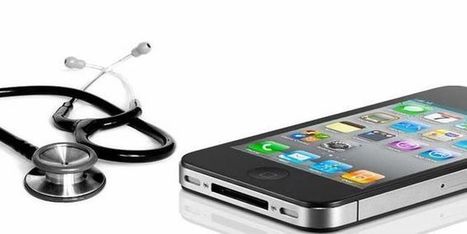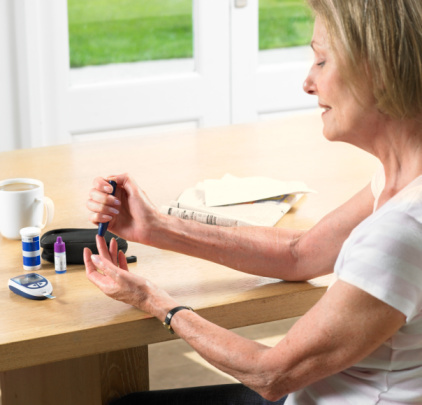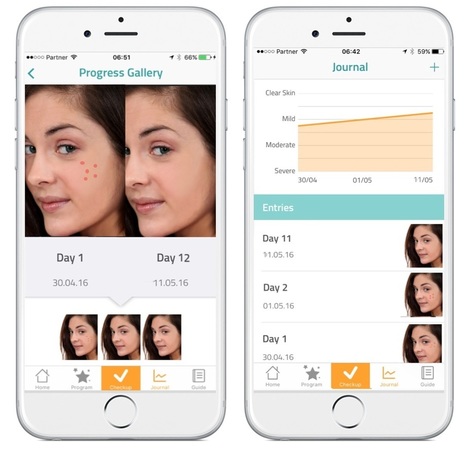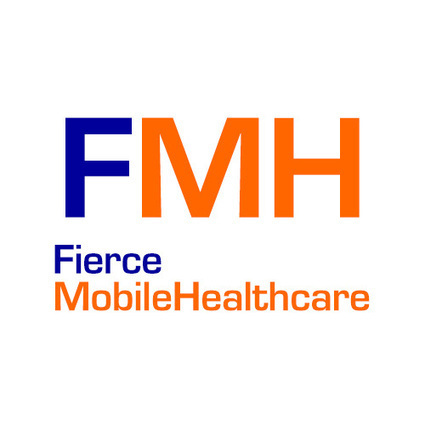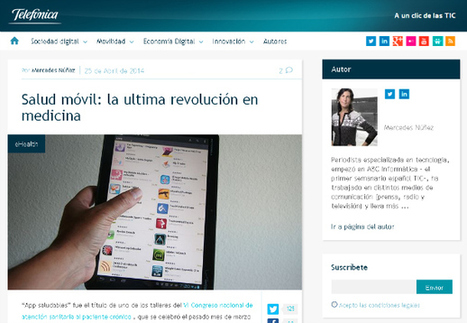
|
Rescooped by Lionel Reichardt / le Pharmageek from Digital Pharma news |
Get Started for FREE
Sign up with Facebook Sign up with X
I don't have a Facebook or a X account
 Your new post is loading... Your new post is loading...
 Your new post is loading... Your new post is loading...
No comment yet.
Sign up to comment

Decide Consulting's curator insight,
January 7, 2015 12:47 PM
Mobile apps encourage healthy behavior. Everyone needs custom preventive and routine care. @decidemobility 
Andre Mouton's curator insight,
January 8, 2015 3:53 PM
Please look outside of the US for options to consider.

ET Russell's curator insight,
November 17, 2014 3:09 PM
[INFOGRAPHIC] providing a snapshot on: - mobile device preferences by clinicians - how clinicians are using mobile devices at the point of care - the top 3 uses that physicians have for mobile based technology in their practice - mobile apps - doctors using social media/hospital social media accounts

rob halkes's curator insight,
August 29, 2014 10:29 AM
There is good perspective to mobile health (ehealth) applications to self management in diabetes. However, as this research review suggests: we need to know more about use and socio technological influences. As I repeat myself: ehealth mhealth is NOT about technology: it is about implementation. Let's go for that!

Marisa Maiocchi's curator insight,
March 21, 2014 2:55 PM
Aportes y conclusiones del primer seminario pan-europeo sobre apps de salud. Muy interesante. |

rob halkes's curator insight,
August 1, 2016 4:50 AM
Health apps should do what they promise! At the moment they need to take a diagnostic feature and use personal physics to arrive at advice or conclusions about the health status of the person who uses the app, they are considered not to be 'just' an "app" but a medical device. At that condition they need to adhere to and be certified by several criteria attached to 'medical devices". Developers should know about this, which the more professional ones will. Rightly so! PatientView has developed a website MyHealthApps that presents an inventory of the better Health Apps. 
Pharma Guy's curator insight,
August 1, 2016 8:38 AM
Also read “FDA Won't Regulate ‘Low-Risk’ mHealth Apps as Medical Devices. But Battle Looms Over Defining ‘Low Risk’"; http://sco.lt/5kkDyr

ChemaCepeda's curator insight,
September 17, 2014 5:02 AM
Parece que los wearables (dispositivos vestibles), es la tecnología de moda ¿cómo chocará esta tecnología con la salud clásica? 
Bouzid Menaa's curator insight,
September 22, 2014 7:28 AM
In collaboration with international renowned scientists, I am developing a new quantitative and qualitative mobile device for bacterial surface detection and diagnostic tool
|





